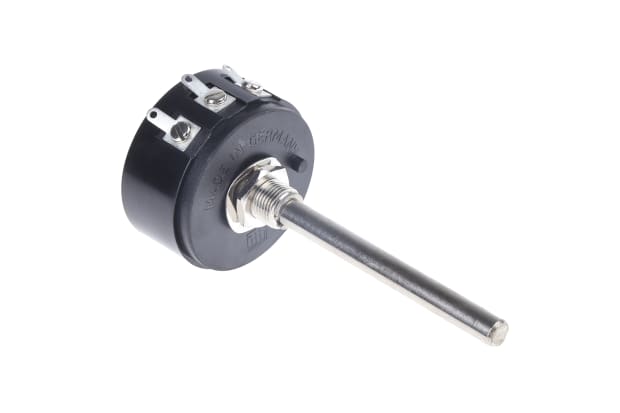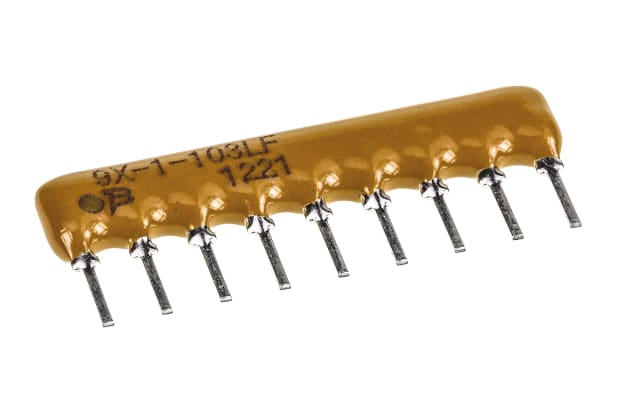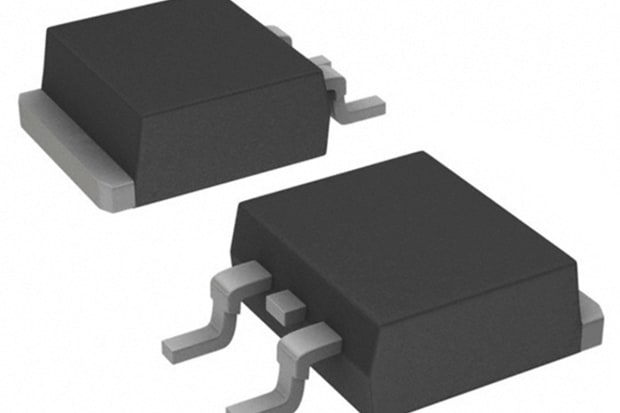- Published 9 Apr 2024
- Last Modified 9 Apr 2024
- 9 min
A Complete Guide to Resistors in New Zealand
What do resistors do and what are the different types of resistors? Learn more in our comprehensive guide.

What are Resistors and What Do They Do?
Resistors are a fundamental component of electronic circuits. They are used to limit the flow of electrical current and control voltage levels within a circuit. In this article, we will explore the different types of resistors, their applications, and how to choose the right one for your project.
At a microscopic level, resistors are made from a variety of materials that are conductors, but not perfect ones, so the ability for electrons to flow is impeded by the atomic structure of the materials chosen. By varying the conductor’s characteristics such as the material’s conductivity, the surface area and the lengths of the material used, it is possible to control the resistance to the desired accuracy. Resistance is measured in Ohms, and the symbol for the unit is Ω.
What is the Circuit Symbol for a Resistor?
The circuit symbol for a resistor consists of a zigzag line. The symbol does not indicate the resistance value, which is typically labelled next to the symbol in the circuit diagram. The zigzag line represents the physical structure of a resistor, which is designed to create resistance in the flow of electrical current.
Key Parameters of Resistors
What is Resistance and How is it Measured?
Resistance is the measure of how much a component opposes the flow of electrical current. It is measured in Ohms (Ω). The higher the resistance, the more it restricts the flow of current.
Resistance can be measured using a multimeter, a common tool used by engineers and hobbyists to measure voltage, current, and resistance in electronic circuits. By placing the multimeter leads across a resistor, the multimeter can measure the resistance in Ohms.
What is Power Rating for a Resistor?
The power rating of a resistor indicates the maximum amount of power it can dissipate without overheating. It is measured in watts (W). Choosing a resistor with the correct power rating is important to ensure the resistor can handle the electrical load without being damaged.
The power rating of a resistor is related to its physical size, larger resistors can typically handle more power. When selecting a resistor for a project, it is important to consider the power rating to ensure the resistor can operate safely and reliably within the circuit.
What is Tolerance for a Resistor?
The tolerance of a resistor is a measure of how much its actual resistance can vary from its specified resistance value. It is expressed as a percentage. For example, a resistor with a 10% tolerance and a specified resistance of 100Ω can have an actual resistance between 90Ω and 110Ω.
Resistors with tighter tolerances are more precise but can be more expensive. The tolerance value is indicated by a colour code on through-hole resistors and a numerical code on surface mount resistors.

Types of Resistors

Fixed Value Resistors
Fixed value resistors are the most common type of resistor. As the name suggests, they have a fixed resistance value and cannot be changed. They come in various shapes and sizes, with the most common types being through-hole resistors and surface mount resistors.
Through-hole resistors have leads that are inserted into holes on a circuit board, while surface mount resistors are mounted directly onto the surface of the board.
Fixed value resistors can be further categorised based on the materials used to make them. Some common types include carbon film resistors, metal film resistors, and metal oxide film resistors.

Variable Resistors
Variable resistors, also known as potentiometers or rheostats, are resistors that have a resistance value that can be adjusted. They typically have a knob or dial that can be turned to change the resistance.
Variable resistors are often used in applications where it is necessary to control the amount of current or voltage in a circuit, such as volume controls on audio equipment or dimmer switches for lights.
Variable resistors come in different configurations, including rotary potentiometers, slide potentiometers, and trimmer potentiometers.

Resistor Networks
Resistor networks are a convenient way to use multiple resistors in a single package. They are commonly used in applications where several resistors of the same value are needed, such as in data bus pull up applications.
Resistor networks can be more cost effective and space efficient compared to using individual resistors, especially in high density circuit designs. They are available in both through-hole and surface mount configurations.
Resistor Applications
Voltage Dividers and Potential Dividers
One of the most common applications of resistors is in creating voltage dividers, also known as potential dividers. A voltage divider is a simple circuit that divides a voltage into a smaller voltage based on the ratio of two resistors.
Voltage dividers are used in a wide range of electronic devices and circuits. They can be used to create reference voltages, measure sensor outputs, and control the brightness of an LED.
Current Limiting with Resistors
Resistors are often used in circuits to limit the amount of current that can flow through a circuit. This is known as current limiting.
Current limiting is important in many applications to protect components from damage due to excessive current. For example, resistors are commonly used as current limiting devices in LED circuits to ensure that the LED operates within its safe current range.
Op-Amp Gain and Feedback with Resistors
Resistors are also commonly used in circuits with operational amplifiers (op-amps) to control gain and provide feedback.
In an op-amp circuit, the gain of the amplifier can be set by the ratio of two resistors. By adjusting the values of these resistors, the circuit designer can precisely control the amplification of the signal.
Resistors are also used to provide feedback in op-amp circuits, which is essential for stability and controlling the behaviour of the amplifier.
Current Measuring with Resistors
Resistors are often used in circuits to measure current. When a resistor is placed in series with a load, the voltage drop across the resistor is proportional to the current flowing through the circuit, as determined by Ohm’s law.
By measuring this voltage drop, the current in the circuit can be determined. This is a common technique for measuring current in electronic circuits.
Impedance Matching with Resistors
Resistors are also used in circuits to match the impedance of different components. Impedance matching is important in applications involving audio signals, RF signals, and other types of communication signals.
Resistors can be used in combination with capacitors and inductors to create impedance matching networks that ensure maximum power transfer and signal quality in electronic circuits.
Data and Address Bus Pullups with Resistors
Resistors are used in digital circuits to provide pull-up or pull-down resistors on data and address bus lines.
Pull-up resistors are connected to the positive supply voltage and ensure that the signal is at a high logic level when no other active device is pulling the signal down.
Pull-down resistors are connected to ground and ensure that the signal is at a low logic level when no other active device is pulling the signal up.
These types of resistors are commonly used in microcontroller and digital logic circuits to ensure reliable signal levels and communication.
How to Choose the Right Resistor for You
Choosing the right resistor for your project is essential to ensure that your circuit operates as intended. Here are some key factors to consider when selecting a resistor:
Consider the Resistor Value and Tolerance
The most important consideration when choosing a resistor is its resistance value. You need to select a resistor with the correct resistance value to achieve the desired level of current or voltage in your circuit.
The tolerance of the resistor is also important. A resistor with a tighter tolerance will provide more precise control over the circuit.
Power Rating of the Resistor
The power rating of the resistor is another critical factor to consider. You need to choose a resistor with a power rating that can handle the amount of power dissipated by the resistor without overheating.
Type of Resistor
Consider the type of resistor that best suits your application. For example, if you need to control the volume in an audio circuit, a variable resistor or potentiometer would be the best choice.
Size and Mounting Type
Consider the physical size and mounting type of the resistor. Through-hole resistors are typically larger and are mounted by inserting their leads into holes on a circuit board. Surface mount resistors are smaller and are mounted directly onto the surface of the board.
Environmental Conditions
If your circuit will be exposed to extreme temperatures or other harsh environmental conditions, you need to choose resistors that are designed to withstand these conditions.
Quality and Reliability
Finally, consider the quality and reliability of the resistors you are using. It is important to source your resistors from reputable suppliers to ensure that they meet the required specifications and will perform reliably in your circuit.
By considering these factors, you can ensure that you choose the right resistors for your project, whether you are a professional engineer or a hobbyist working on a DIY electronics project.
Where to Buy Resistors in New Zealand
If you are looking to purchase resistors in New Zealand, there are several options available to you. Here are some of the best places to buy resistors in New Zealand:
Local Electronics Stores
One of the most convenient options is to visit a local electronics store. These stores typically carry a wide range of electronic components, including resistors. You can speak with the staff to get advice on choosing the right resistors for your project, and you can often find the components you need on the spot.
Online Retailers
There are several online retailers in New Zealand that specialise in electronic components. Ordering resistors online can be a convenient option, as you can browse through a wide selection of components and have them delivered directly to your doorstep.
RS Components
RS Components is a global distributor of electronic components and industrial parts, with a strong presence in New Zealand. They offer a wide range of resistors, including through-hole and surface mount types, as well as variable resistors and resistor networks.
Whether you prefer to shop in person at a local store or take advantage of the convenience of online shopping, these options will help you find the resistors you need for your projects in New Zealand.
Conclusion
Resistors are essential components in electronic circuits, used to control current and voltage levels. By understanding the different types of resistors, their applications, and the key factors to consider when choosing them, you can ensure that your circuits operate as intended.
Whether you are an engineer working on a professional project or a hobbyist experimenting with electronics, selecting the right resistors is crucial. If you are in New Zealand and looking to purchase resistors, there are several local and online options available to you.
By considering the resistor value, power rating, type, and other factors, you can make informed decisions when selecting resistors for your projects. We hope this guide has provided you with the information you need to work with resistors effectively and confidently.
Popular Brands
Browse related products from RS PRO
Browse related products from Bourns
Browse related products from TE Connectivity
Related links
- Understanding Thermistors: Types and Calibration in New Zealand
- A Complete Guide to Micrometers
- SATA Cables – A Complete Guide in New Zealand
- A Guide to UPS Systems and Why Eaton is Your Trusted Choice in New Zealand
- The Complete Guide to Industrial Weighing Scales
- What are Electrical Transformers in New Zealand?
- A Comprehensive Guide to Manometers in New Zealand
- Gas Springs: Applications and Choosing the Right Solution in New Zealand


